Notes on 'The Viscount Who Loved Me' by Julia Quinn
On the Bridgerton books, Anthony and Kate's romance, and conquering fears
Dearest Gentle Reader,
I’m trying to write about the books I read to become a better writer and a more active reader and to remember how I felt when I read a story. I don’t want to attach many rules or structures to these posts. The more casual, the better.
I started a Bridgerton book series (re)read in February to challenge myself to read as much as possible before Bridgerton Season 3 Part 1 premiered in May. Life got a bit complicated, and other things became a priority. Still, I managed to slip in and out of Julia Quinn’s regency romance novels whenever I could.
I breezed through Queen Charlotte: A Bridgerton Story by Quinn and the show’s executive producer, Shonda Rhimes, which I liked for finding out how the story and perspectives moved from screen to page instead of the opposite, Quinn’s The Duke and I, which isn’t my favorite (I suggest looking up the trigger warnings before reading), and The Viscount Who Loved Me.
Now, I’m rereading Benedict’s book, An Offer from a Gentleman, about an interclass romance through a retelling of Cinderella. So far, The Viscount Who Loved Me, the enemies-to-lovers story between the first-born Bridgerton son Anthony and Kate Sheffield, remains my favorite.
Spoilers below!
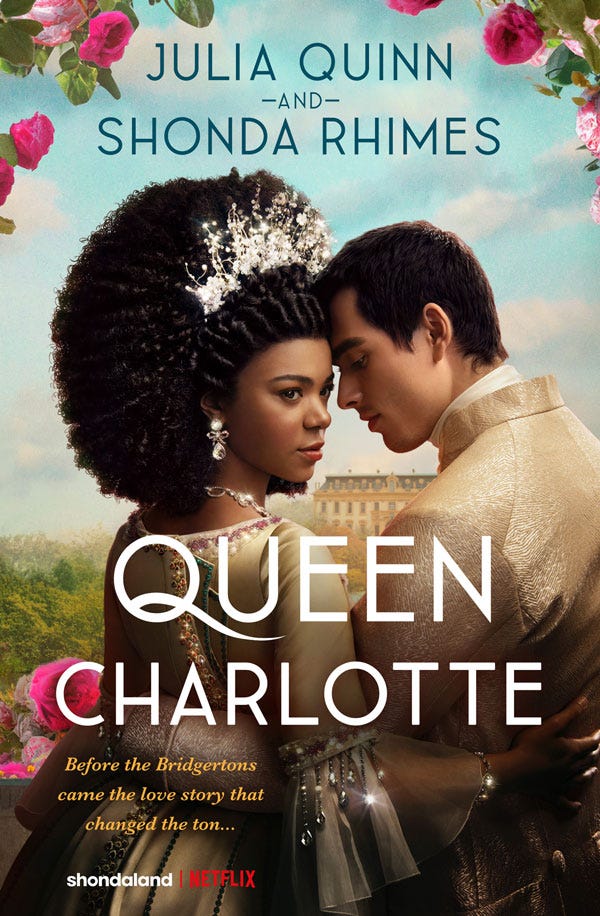
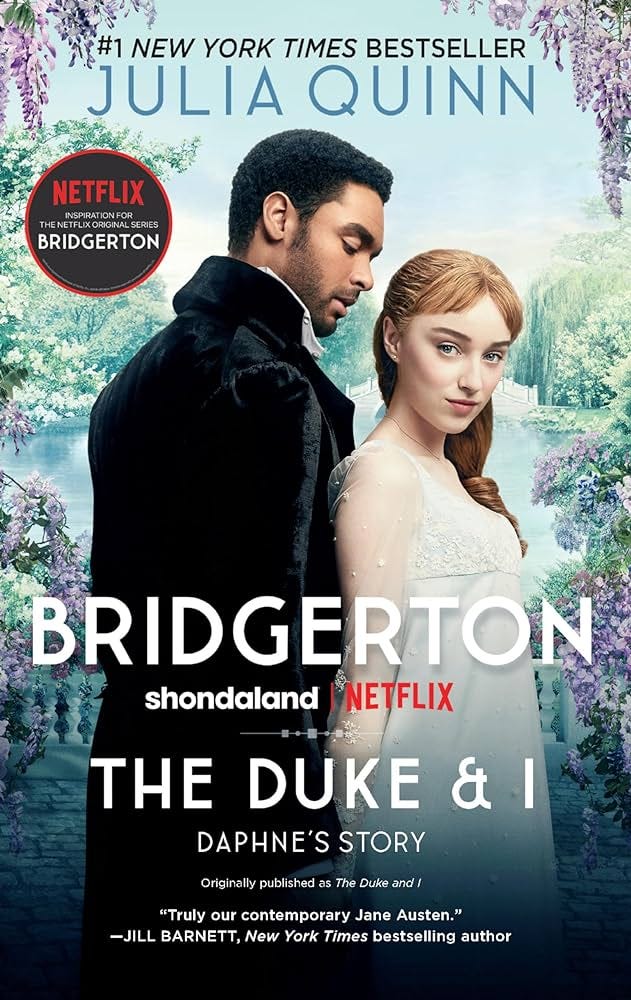
Anthony Bridgerton and Kate Sheffield jump off the page to me right away. Their characterization is instantly strong, especially with Anthony from that first line. Ever since Stuck in Love became one of my favorite movies when it came out in 2012, I have looked at the first line of books differently. Every time I open a book now, I hear Bill Borgens (Greg Kinnear) telling his son and aspiring writer Rusty (Nat Wolff), “If that was the opening line of a book, you’d have your reader hooked.”
Julia Quinn hooks me from the first line of The Viscount Who Loved Me.
“Anthony Bridgerton had always known he would die young.”
This line makes me question if one of the biggest romance conventions—a happily ever after—will apply to Anthony Bridgerton. It also says a lot about the hero in only nine words. Principally, it expresses Anthony’s loyalty, especially to this conviction that he lives on borrowed time. Anthony has no time for love, but he learns that a force with such strength is as powerful and unavoidable as death.
Anthony doesn’t always hit the likable or romantic mark for me (Why does he have a weird reaction to Kate wanting to wait to have sex, for one?), but his unrelenting internal dialogue about death and dying is emotionally compelling. So much so that loss becomes a main character in this story; I’d even argue that it becomes a third person in the central romance when considering Kate’s experiences with loss. Kate loses her mother when she is young, and then her father passes, and Kate feels responsible for her stepmother and younger sister.
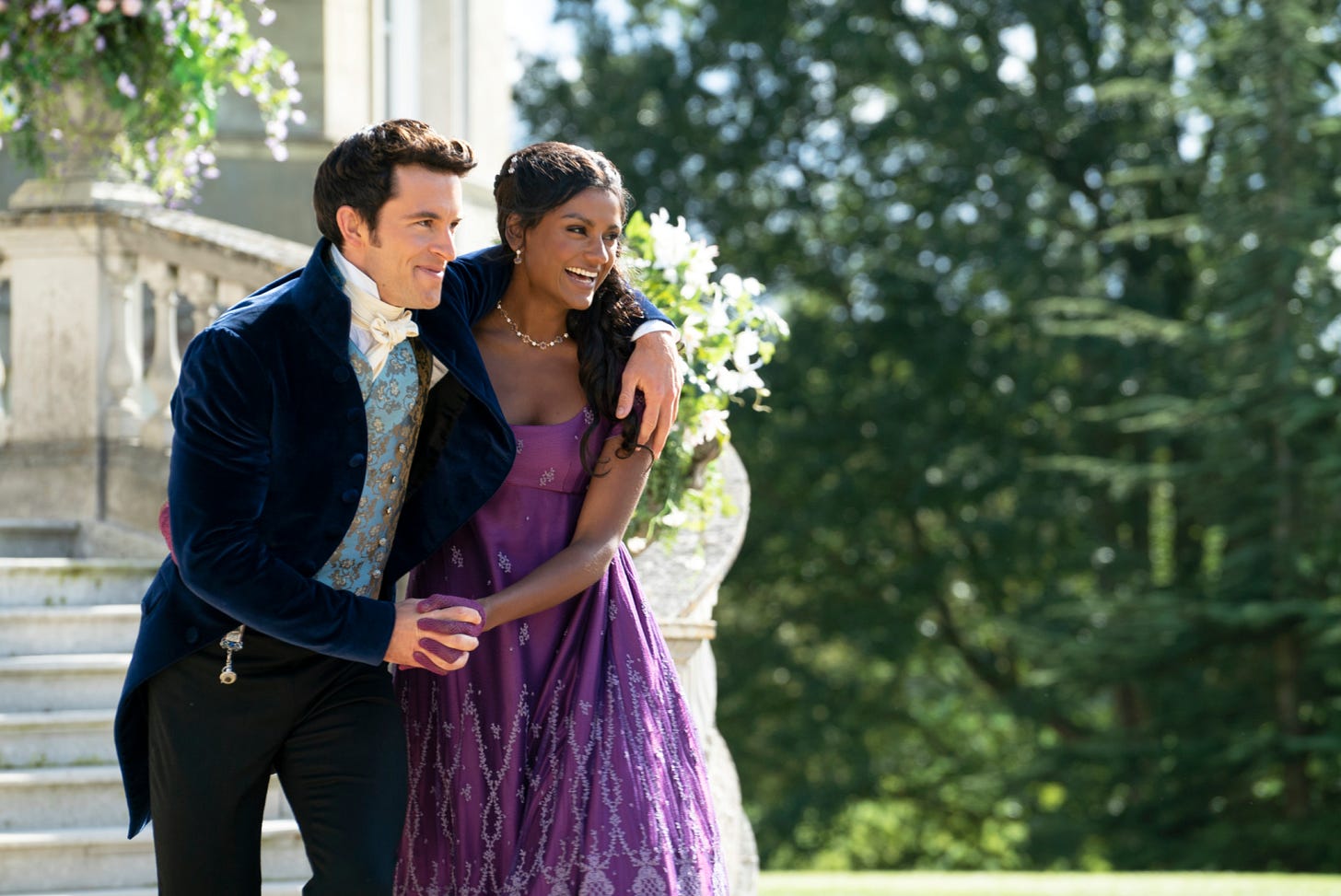
“‘It really is more difficult when you’re older. You’re blessed because you had the chance to know them, but the pain of the loss is more intense.’”
I love Kate Sheffield in the book, and I love Kathani Sharma and Viscountess Bridgerton on the show. I wish that more of Kate’s backstory from the book would have been adapted to screen, but I’m glad that the dynamic between her and her stepmother, Mary, made the cut. I find their relationship to be a true cornerstone of this book, even more so than the initial 10 Things I Hate About You-esque dynamic between Kate, Anthony, and Kate’s younger sister, Edwina.
As much as the sharpness of Anthony’s memories haunts him, the blurriness of Kate’s haunts her. So, one of the most moving portions of the book comes in its final third when Kate goes to Mary in search of some definition. It’s a poignant sequence that sticks out to me. I often think of it in tandem with Anthony’s descriptions of Aubrey Hall. From Anthony’s precise recollection, I can feel the Bridgerton patriarch Edmund’s ghost in that beloved space. But I can also feel the warmth of a man who stood so tall that it was stunning that a bee had killed him.
“Anthony closed his eyes and exhaled. He loved coming to Aubrey Hall, but the familiar sights and smells brought his father to mind with a clarity so vivid it was almost painful. Even now, nearly twelve years after Edmund Bridgerton’s death, Anthony still expected to see him come bounding around the corner, the smallest of the Bridgerton children screaming with delight as he rode on his father’s shoulders.”
That loss lingers in every choice Anthony makes; it sticks to his very soul, as does his duty to his family. Quinn’s writing makes it easy to see how Anthony takes that heaviness and turns it into isolation that feels so singular. The book does a good job of showing how Anthony and Kate gradually fall in love and realize the other person understands all of those complexities more than they ever anticipated.
“Her brown eyes, wise and warm and undeniably perceptive, focused on his. For one split moment he had the bizarre thought that she somehow knew everything about him, every last detail from the moment of his birth to his certainty of his own death. It seemed, in that second, with her face tipped up toward his and her lips slightly parted, that she, more than anyone else who would ever walk this earth, truly knew him.
It was thrilling.
But more than that, it was terrifying.”
Naturally, this book has plenty of romantic lines, such as Kate believing Anthony to be most “handsome in the late afternoon” or Anthony finally feeling at peace when he admits he’s in love with Kate. Nevertheless, I find the most romantic, swoon-worthy, if you will, parts of The Viscount Who Loved Me to be when Anthony and Kate help each other navigate and understand their grief and how it correlates with their fears to live for themselves and love each other.
Removed from the romance, I find Kate’s anxiety surrounding thunderstorms so deeply relatable that I jotted down every quote she said about them, even the one that acknowledges the fear as irrational. I, too, know that the storm will pass, but it feels incredibly, admittedly ridiculously possible that I could die during it.
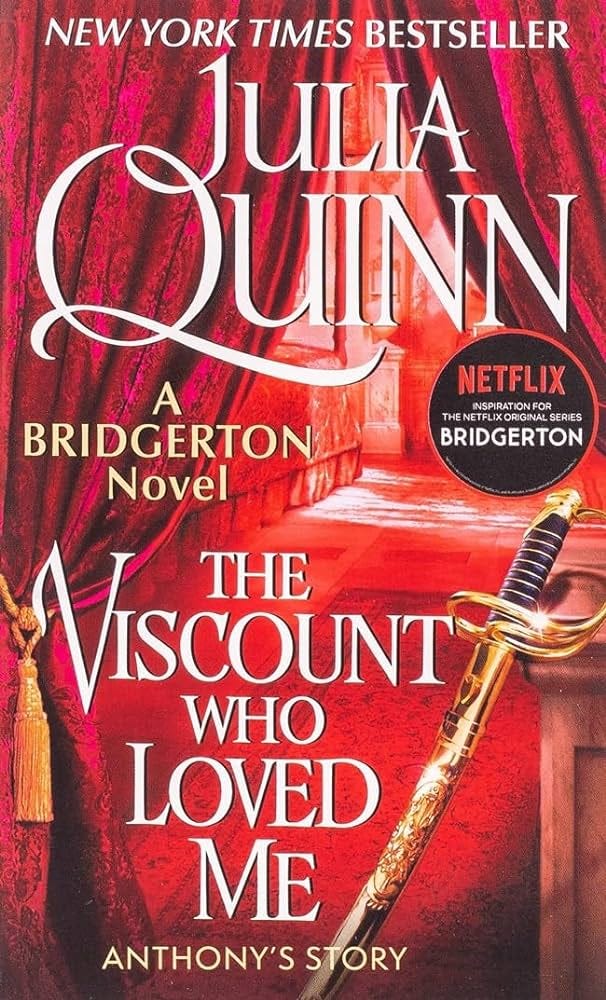
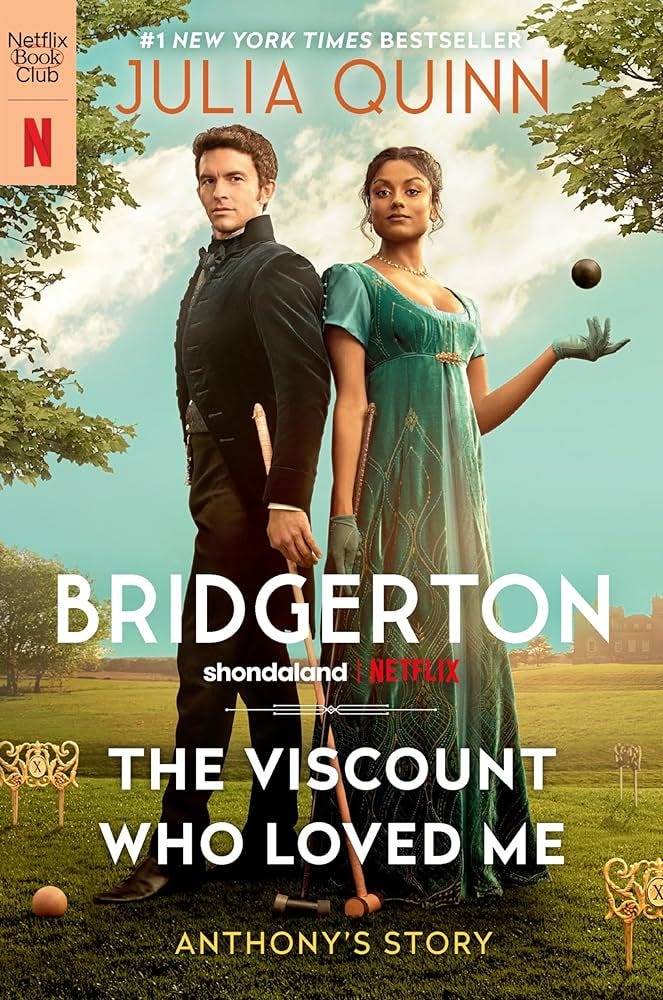
The metaphor speaks for itself. Yet, its specificity hit me like a ton of bricks, so I like that Kate conquers her fear on her own. It gives me hope that I could, too. One day. Maybe. Possibly. Hopefully.
“Anthony was gone, and while she was certain he’d return in body, she was not so confident about his spirit. And she realized that she needed something—she needed the storm—to prove to herself that she could be strong, by herself and for herself.”
Coincidentally, that sentiment brings me to my final quote from The Viscount Who Loved Me, which Kate says in response to Anthony’s fears of outliving his father.
“You can’t shun new challenges or hide yourself from love just because you think you might not be here to carry your dreams to completion.”
I reread this book right before dedicating myself to this newsletter. I saw this quote as a(nother) sign that I needed to conquer my fears of showing up for myself (Conquering my fears of thunderstorms will wait). I finally accepted that there would be ebbs and flows, but they wouldn’t stop me from writing. After weeks of debating, I didn’t want to shun this new challenge.
I’m happy I decided that. I’m having the best time writing about the things I like, and it’s still unbelievable that people want to read it. So, thank you. Really. I can’t wait to write about Cinderella, Sophie Beckett, and my favorite Bridgerton brother in An Offer from a Gentleman next. I hope you’ll want to read that, too.
Until next time. Yours truly,
💌 Shelby
I want to let you, my readers, know I plan to introduce a paid subscription to this newsletter later this summer. With the current state of entertainment journalism, it’s imperative that writers are valued, which is one of the reasons why I like the uplifting community on Substack. I’d greatly appreciate it if you want to pledge a subscription now. I will sprinkle in reminders as the paid subscription’s launch gets closer.




